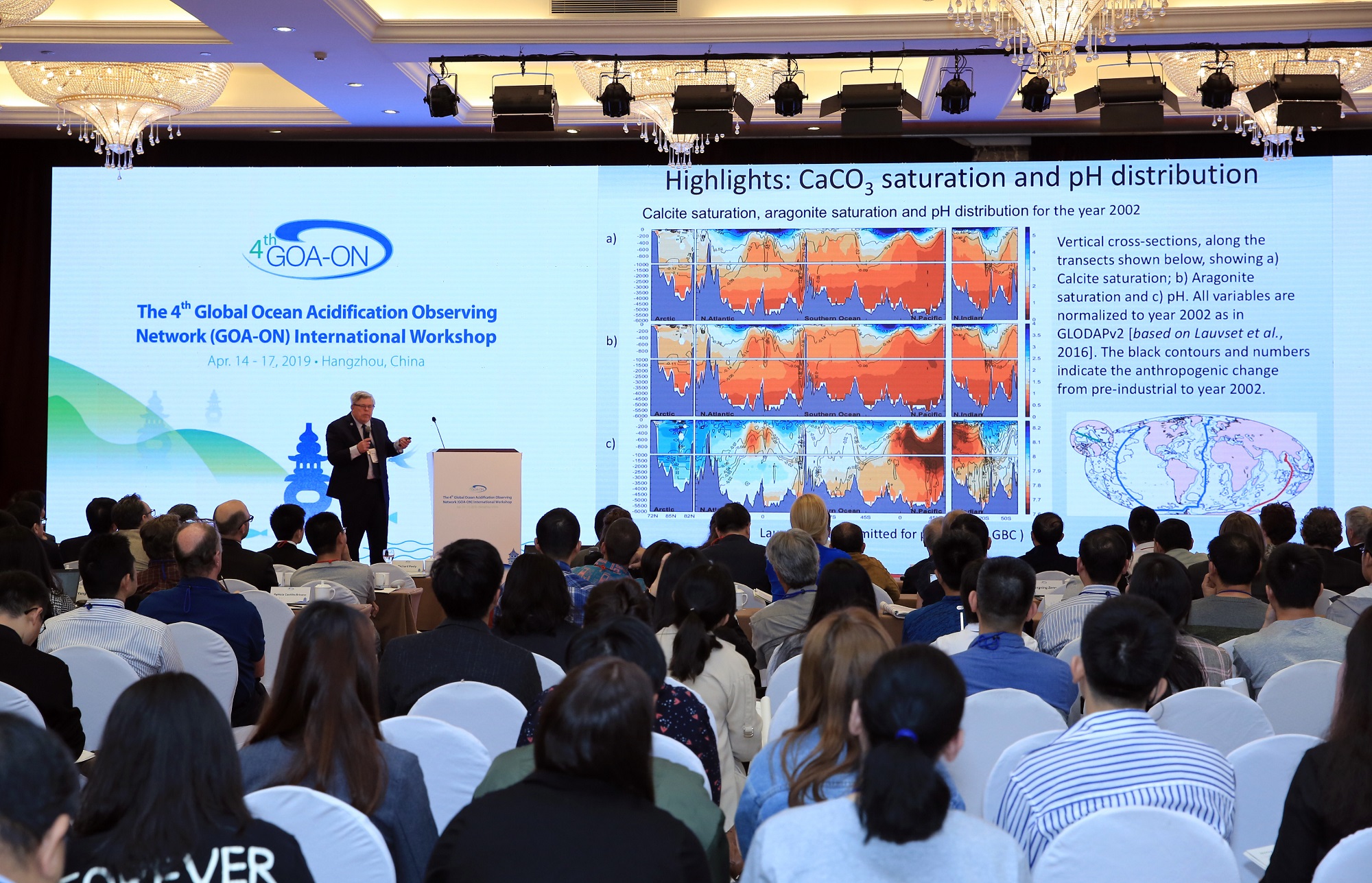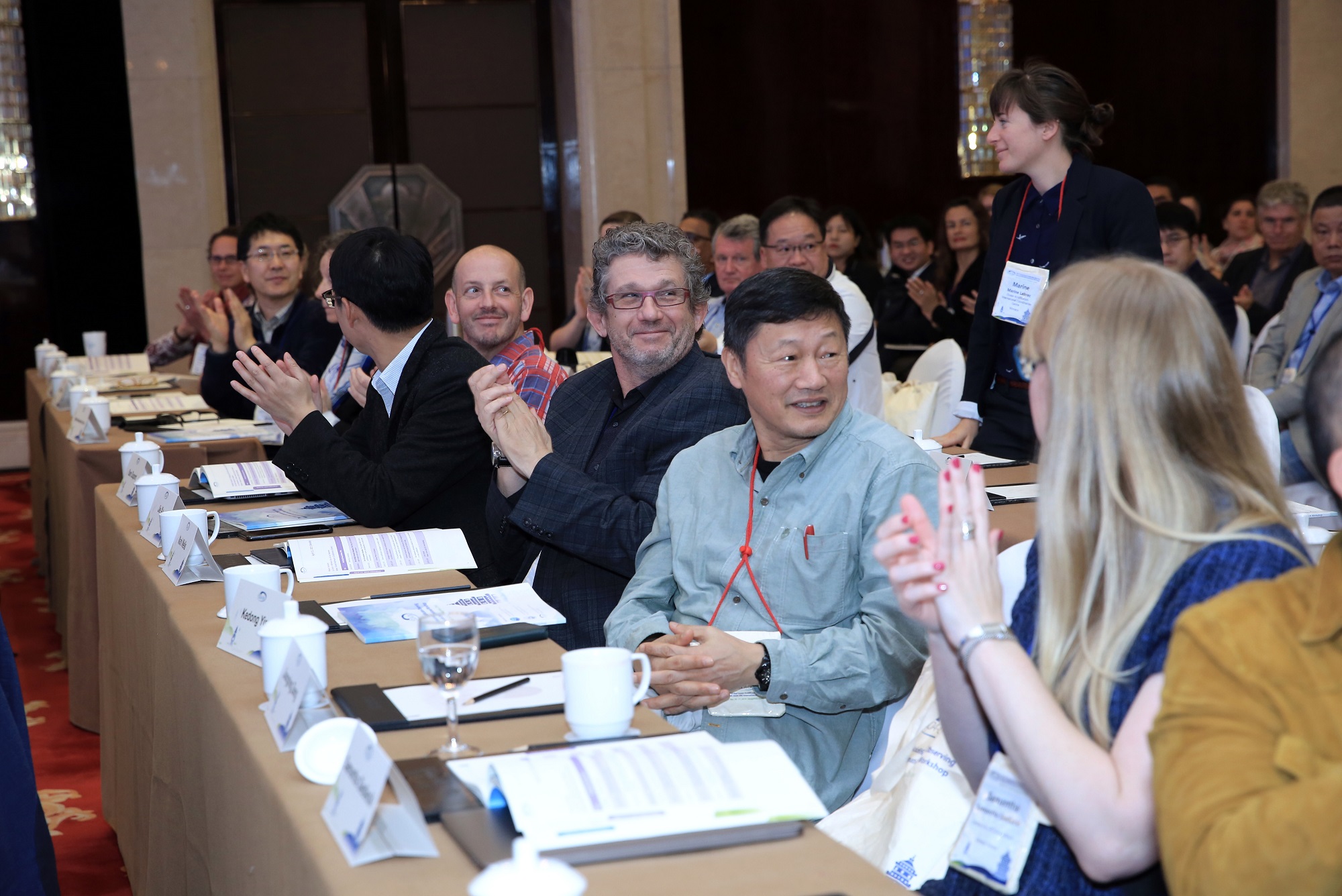News


On April 15, the 4th Global Ocean Acidification Observing Network (GOA-ON) International Workshop with the theme of ocean acidification observations was inaugurated in Hangzhou. The conference attracted more than 250 well-known experts, scholars and industry representatives from the marine industry at home and abroad. Academician Chen Dake reviewed the scientific research progress of ocean acidification and the government’s countermeasures, and pointed out that ocean acidification is a common ecological problem for human. Professor Jan Newton, co-chairman of the conference, gave a brief introduction to the development background of GOA-ON and its main work.
The GOA-ON, as a platform for international cooperation on global ocean acidification research, was officially established in 2012 by multiple institutions such as the United States National Oceanic and Atmospheric Administration (NOAA), the International Atomic Energy Agency (IAEA), and the Intergovernmental Oceanographic Commission (IOC). In recent years, GOA-ON has organized a number of global ocean acidification related work: observing the state of ocean acidification in areas such as the open ocean, offshore and estuarine areas worldwide; assessing the impact of ocean acidification on marine ecosystems; analyzing the driving factors of ocean acidification; providing high time-space resolution data to optimize ocean acidification analysis and prediction models; holding international seminars to discuss how to apply research results to ocean management and ecological protection; calling for regional and global response policies, etc. At present, 94 countries including China participate in GOA-ON. This workshop is one of a series of international workshops initiated by GOA-ON. Such workshop was successfully held for three sessions before, which effectively promoted the cooperation, exchange and development of global ocean acidification observation activities. The number of experts and scholars attending the conference increased from over 60 in the first meeting to over 250 in this conference. The coverage of the conference also gradually expanded, and the number of participating countries increased from 15 countries in 2012 to more than 60 countries this time.
The conference was divided into four branch venues around the topics of the ocean acidification research progress, coastal ecosystem response, marine physical ecological process simulation, and development of ocean acidification observation collaborative network. At the conference, the keynote speech by the American marine scientist Richard Feely showed that acidification has occurred to varying degrees in the coastal waters of the Pacific, Indian and Atlantic oceans, threatening the marine ecological environment and the sustainable use of natural resources. China and many other countries are facing the objective fact of ocean acidification. Under the dual pressure of eutrophication and increased global carbon dioxide emissions, offshore waters are significantly affected by acidification. The establishment of the ocean acidification observing network, as an integral part of the global ocean three-dimensional observing network, can provide marine observation data and scientific support for marine disaster prevention and reduction, marine pollution prevention and control, and ecological environmental protection, and is an important approach to the construction of marine ecological civilization and the sustainable development of human beings.



